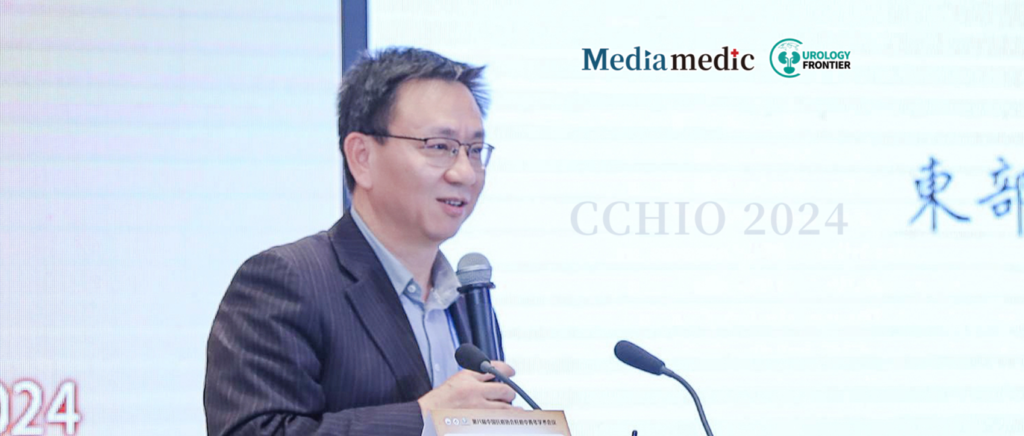
Editor's Note: The era of immunotherapy has brought new hope to advanced hepatocellular carcinoma (HCC), with various targeted-immune combination therapies emerging as potential breakthroughs. However, the journey of the "Cola Combination"—pembrolizumab combined with lenvatinib—has been marked by mixed results. In the LEAP-002 trial, the combination showed negative results in the general population but positive outcomes in the Asian subgroup. The LEAP-012 trial further demonstrated the combination's efficacy when paired with transarterial chemoembolization (TACE) in intermediate-stage HCC. Yet, its precise role in clinical practice remains under discussion.At the 2024 Chinese Congress of Holistic Integrative Oncology (CCHIO), Dr. Xiufeng Liu from the General Hospital of Eastern Theater Command delved into the “Cola Combination” and its potential as a first-line therapy for advanced HCC. Oncology Frontier conducted an exclusive interview with Professor Liu to explore the clinical promise of this therapy.
1. Oncology Frontier: The “Cola Combination” faced setbacks in the general population during the LEAP-002 trial but showed positive outcomes in the Asian subgroup. Why do you think the results differ between these populations?
Dr. Xiufeng Liu: This discrepancy is not unique to the LEAP-002 trial. Subgroup analyses of other studies, such as IMbrave150, COSMIC-312, ORIENT-32 (“Double D Combination”), HIMALAYA, and CheckMate-9DW, reveal that Asian populations often derive more significant benefits from targeted and immune therapies than global populations.
The primary reason lies in the etiology of HCC. Hepatitis B virus (HBV)-related HCC, which is more prevalent in Asian populations, appears to be a favorable population for first-line immunotherapy. This distinct etiology likely contributes to the enhanced efficacy of the “Cola Combination” observed in Asian patients.
2. Oncology Frontier: Given the debates during CCHIO, do you support the “Cola Combination” as a standard first-line therapy for advanced HCC?
Dr. Xiufeng Liu: The data from the Asian subgroup, particularly the Chinese cohort, in the LEAP-002 trial demonstrated a median overall survival (mOS) of 32.3 months—a result unmatched by other targeted or immune therapies. This underscores the potential importance of conducting further clinical research and practice involving the “Cola Combination” in Chinese populations.
Since the IMbrave150 trial in 2019, targeted-immune therapies have revolutionized HCC treatment, with the “Cola Combination” being one of many options. While it can be considered in clinical settings, elevating it to a “standard therapy” requires addressing multiple challenges:
- Evidence and Accessibility: China needs high-level evidence and pharmacoeconomic data to justify the widespread clinical application and inclusion of new therapies in reimbursement schemes.
- Comprehensive Evaluation: We must assess how the “Cola Combination” integrates into the overall treatment landscape. Can it improve conversion therapy opportunities and extend survival when moved earlier in treatment sequences? Does it leave room for effective second-line therapies? Factors like liver function and patient tolerance must also be considered.
Ultimately, clinicians must adopt a whole-disease-course management perspective to determine the optimal position of this therapy in HCC treatment.
3. Oncology Frontier: The LEAP-012 trial presented at ESMO 2024 highlighted the success of the “Cola Combination” plus TACE in intermediate-stage HCC. How do you interpret these findings compared to LEAP-002?
Dr. Xiufeng Liu: Clinical trial outcomes are often oversimplified as “positive” or “negative,” but translating these results into practice requires deeper mechanistic understanding.
The LEAP-012 trial demonstrated positive progression-free survival (PFS) results for the combination of TACE and the “Cola Combination” in intermediate-stage HCC. In contrast, the LEAP-002 trial failed to meet its primary endpoint of overall survival (OS) in advanced HCC.
One possible explanation lies in the role of lenvatinib. This drug contributes significantly to normalizing tumor microvasculature and improving PFS, making it a critical component in combination regimens. For highly vascularized HCC tumors, altering the immune microenvironment is essential, but lenvatinib’s complementary role cannot be ignored.
While LEAP-012 achieved its primary endpoint, OS data remain immature. Further research is needed to reconcile these findings and understand the nuances between intermediate and advanced-stage HCC management.
4. Oncology Frontier: Can the success of the “Cola Combination” plus TACE in LEAP-012 inform its use in first-line treatment for advanced HCC?
Dr. Xiufeng Liu: It is inappropriate to extrapolate the success of a treatment in intermediate HCC directly to advanced HCC. The future of HCC management lies in building a comprehensive treatment system rather than relying solely on isolated regimens.
Clinicians should focus on sequential treatment strategies rather than evaluating therapies in isolation. A holistic approach that integrates foundational liver disease management, antiviral therapy, and comprehensive complication management is essential. The goal is not just to control tumor progression but to improve overall survival and quality of life.
HCC is a complex, multidisciplinary disease. Physicians in various specialties contribute to reshaping the tumor’s immune microenvironment. In the near future, we must establish an integrated disease-course management system that moves beyond traditional concepts of first- and second-line therapies. By viewing HCC treatment as a continuum, we can ensure that patients live longer and better lives.
About Dr. Xiufeng Liu
- Current Positions: Deputy Director, Oncology Department, General Hospital of Eastern Theater Command Chief Physician, MD
- Professional Leadership: Secretary, Oncology Committee, National Health Commission Member, Hepatic Cancer Quality Control Expert Committee, National Cancer Center Vice Chair & Secretary General, CSCO Hepatocellular Carcinoma Committee Vice Chair, CSCO Biliary Tract Tumor Committee Standing Member, CSCO Gastrointestinal Stromal Tumor Committee Standing Member, Chinese Society of Liver Cancer Member, Chinese Liver Cancer Precision Treatment Alliance
- Recognitions: Fourth “National Famous Doctor – Outstanding Role Model” Award
Professor Liu’s expertise in hepatocellular carcinoma treatment and research continues to shape advancements in targeted and immune therapies, bridging the gap between clinical practice and emerging scientific insights.


